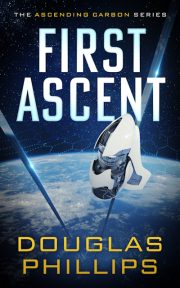Two Essential Questions to Ask As You Self-Edit
By Kahina Necaise
Convincing fiction is about cause and effect.
That’s why, in my work as an editor, the two questions I ask most often while diagnosing an issue with a client’s story are:
- Does this come out of nowhere?
- Does anything ever come of this?
Does this come out of nowhere? is about unclear cause. Some element in the story hasn’t been set up or foreshadowed, so when it becomes important, the reader feels jarred.
Does anything ever come of this? is about unclear effect. Some element draws attention to itself in the narrative, but nothing important ever comes of it.
Sound too obvious to be useful? Let me show you how I put these questions to work when homing in on problems in plot, character, and worldbuilding.
Plot
Does this come out of nowhere?
When the reader feels like a plot event comes out of nowhere, it’s often for one of two reasons. The first is that the event wasn’t foreshadowed. Even the most shocking plot twists make a bigger impact when they’re foreshadowed, as long as you’re sneaky about it.
The second reason is that a new conflict isn’t well connected to the main plot or to important characters or themes. The reader experiences such turns as unwanted detours unless the connection is established early and organically in the story.
Does anything ever come of this?
The obvious example here is loose ends: conflicts that are never resolved by the end of the story, leaving the reader saying, “Hey, what happened with…?” Less obvious examples:
- Promises of the story’s premise aren’t kept. A story about a dragon-rider that has disappointingly little to do with dragons. A cool utopian setting that’s never explored.
- Protagonists gain information or a skill, then do nothing with it.
- Antagonists make threats that never come up again, setting up false stakes.
- Characters resolve to do something, but never do it.
Character
Does this come out of nowhere?
I ask this about moments when a character reacts in a way the reader has no precedent for understanding. When a character’s likes or dislikes will have an effect on the plot, set it up before it becomes important. Don’t let the moment a prince stabs the king be the first we hear about their strained father–son relationship.
Also, beware of characters basing their actions on assumptions about another character if you haven’t given the reader enough evidence to agree. If your protagonist’s plan hinges on the antagonist losing a bet, you’d better have established somewhere that the antagonist is a betting woman.
Does anything ever come of this?
Since character doesn’t have the same obvious cause and effect as plot, a “set it and forget it” attitude shows up in at least one of these ways in almost every manuscript I read.
- Characters who disappear.
- Unnecessary backstory.
- Hurts that are forgotten the next time the characters meet.
- Friendships that form but never deepen.
- One character’s deep, dark suspicions of another that are never brought up again.
Tell yourself the story of each character and relationship, using only the information that appears in your draft. If an arc doesn’t work, you’ve probably included something unnecessary or need to follow up on something.
Worldbuilding
Does this come out of nowhere?
In speculative fiction, worldbuilding is the most likely source of deus ex machina. Usually, though, it’s subtle. The limitations of the world’s magic or tech are never established, so when the protagonist’s magical prowess or high-tech device saves (or endangers) their life, the reader asks, “Since when can they do that?”
Show, don’t tell is sometimes to blame. You may show the unique features of your world in action and never get around to focusing on what they can’t do. Show or tell the limitations, and do it soon after the feature is introduced, while readers’ expectations are still malleable.
Does anything ever come of this?
Want to frustrate readers? Describe interesting places and things in your world, then let them be window dressing for the rest of the story. (Chekhov’s proverbial gun can also be a laser gun or a magic staff!) Even better—place characters in situations where that Interesting Thing could help them and have no one suggest using it to solve the problem.
Readers are clever, so if there’s any way your world’s resources could offer an easy solution, expect that they’ll find it and get mad at the characters for not figuring it out.
So…
Getting cause and effect right is trickier than it looks. In those moments when you’re reading over your latest draft, loving and hating it in equal measure, and something feels off, try asking “Does this come out of nowhere?” and “Does anything ever come of this?” . While not a cure-all for your self-editing ailments, these two questions can be a powerful set of diagnostic tools that works in all aspects and at different levels of storytelling.
 Kahina Necaise is the executive editor of Fabled Planet, which provides editing and guidance tailored to writers of fantasy and science fiction. When not editing, she can usually be found writing her own fantasy stories, reading about ancient civilizations of our world or others, gathering sources for her someday dissertation on The Chronicles of Narnia, or going on walks while daydreaming about one of these things.
Kahina Necaise is the executive editor of Fabled Planet, which provides editing and guidance tailored to writers of fantasy and science fiction. When not editing, she can usually be found writing her own fantasy stories, reading about ancient civilizations of our world or others, gathering sources for her someday dissertation on The Chronicles of Narnia, or going on walks while daydreaming about one of these things.


